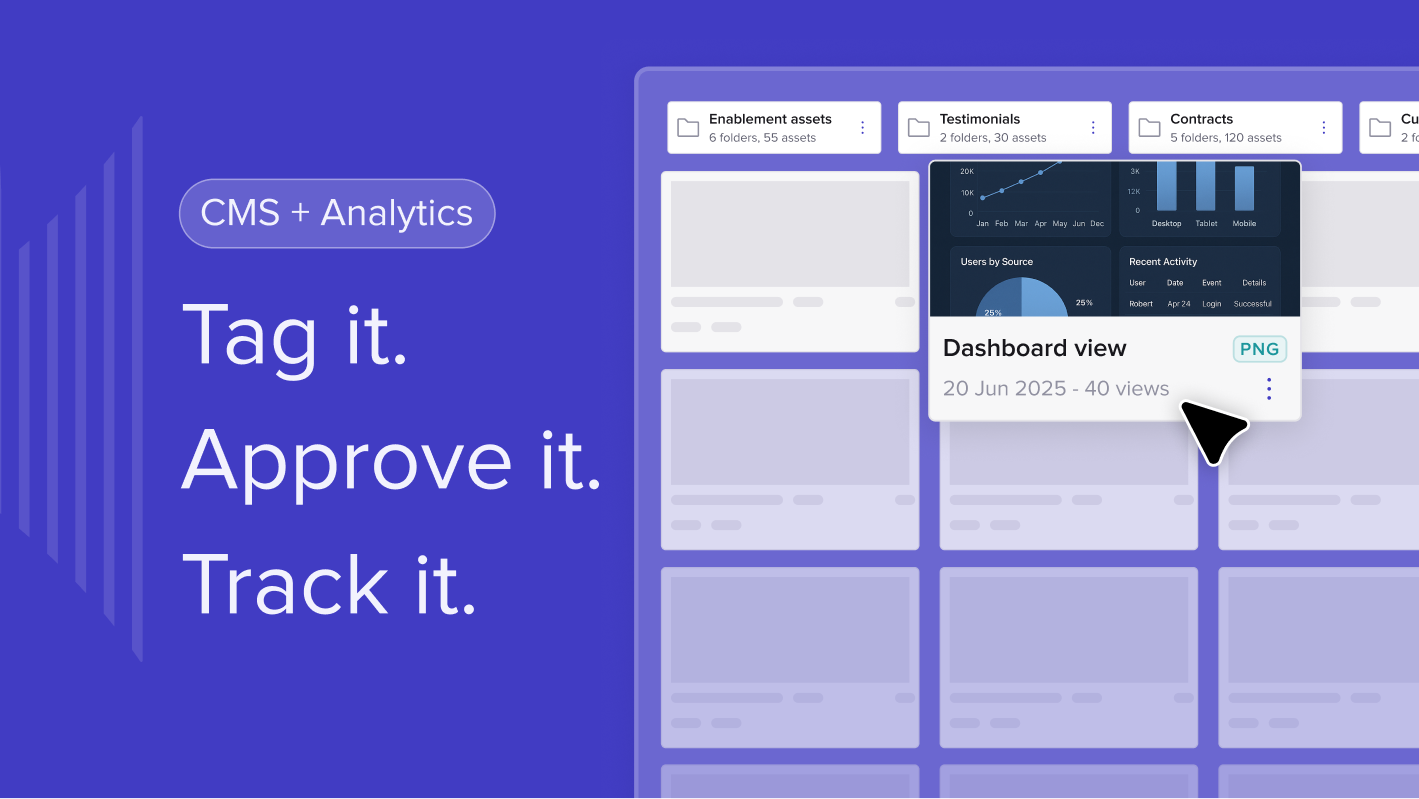Listen on Spotify
In this episode of the GTM Insider we have Scott Leese on the mic! Renowned sales leader, founder, author, and sales consultant who recently launched the GTM United Community, a platform for go-to-market professionals.
We'll be discussing…
- Positioning discovery calls as conversations not interrogations
- The art of asking the right questions during a discovery call
- The importance of avoiding sales jargon
- How tone and delivery of a question can make or break that relationship
We'll give you practical tips and share both good and bad experiences to help you level up your sales game.
Where to find Scott:
trumpet in the wild:
Full episode transcript
Rory:
Thank you very much for joining me today on another episode of the GTM Insider, a masterclass series with industry experts diving into relevant and topical topics. And today I'm delighted to be joined by an investor. Scott Lee, he's not only an investor, but a sales leader, author, founder, and now community builder. I don't think any introduction will do you justice. I'm going to hand it to you, Scott.
Scott:
Thanks for having me, Rory. Good to be here, man. And proud of what you all are doing so far at Trumpet. Enjoy getting the updates every single month. And keep the good progress coming.
Rory:
Yeah, will do. Also keen to tell the audience here a little bit more about GTM United that you’re able to share.
Introduction to Scott
Scott:
Yeah I've spent a lot of time building sales and revenue communities over the last few years. Started way back in 2017 with Surf & Sales, which is kind of a micro conference that morphed into a small community.
Then during COVID, I founded this company called Thursday Night Sales, which had 30-something-thousand people come to these virtual sales, happy hours, these Q&A, kind of ask me anything events on Thursday nights.
Ran that business for a few years and then morphed that into GTM United, which is the first sales and revenue community that actually has built in income earning opportunities and side hustles into the community.
So we actually actively provide referral selling opportunities for the members. So I'm a big proponent of this kind of idea that go-to network is what's coming next, and that's replacing old school kind of go-to market strategy.
So trying to teach people a little bit about that as well as involve them in the process right now. So do a couple trainings a week. We've got active kind of live referral blitzes that we do and things like this. So that's kind of what we're doing with GTM United. Only revenue community out there that is working on this right now.
Rory:
Awesome. Love it.
I definitely recommend everyone checking it out. It's crazy, if you've ever been in sales, you're always told ask your network, lean into them, ask who they know, and ask for referrals when you bring on a new customer—no one ever does it, and now everyone's doing it in this current climate because they realize the power of it.
And I think they call it the bird in hand principle; who your network knows and unlocking that value. So definitely resonates.
But anyway, onto today's hot topic. Basically we're discussing conversations, not interrogations.
I think you've been there and done it in sales to see the amount of painful discovery demo calls, where as a buyer on the other end of the call, you're just asking question after question, and the rep is told here's this checklist, you've got to get all of these bits of information, otherwise this deal will not close or it will not move forward.
I'm curious to hear, having been there and done it, built teams, led teams, and with all the sales methodologies and frameworks out there, what are your thoughts on navigating a meaningful human conversation without getting all the information you need, without it being an interrogation, which it can easily become?
Navigating a meaningful human conversation
Scott:
Yeah, so you hit one of the points, which is, question after question. So that's definitely going to make somebody feel like they're being interrogated.
You can get away with it a little bit better though if you don't just move on once somebody answers to whatever your next question is. So if I ask you a question, you give an answer, and then I express interest in what your answer was or a little bit of clarity or like, “Hey, tell me more about that. What's the story there?”
Then it becomes more of a dialogue rather than an interrogation where somebody feels like they're on the witness stand being talked to by a solicitor or the lawyer.
So that's one thing; try not to ask so many questions all in a row. If you do have to ask lots of questions, lean into some of their responses and kind of sit with that for a little bit so it feels more like a conversation and a dialogue rather than just a scripted “I've got to run through these 25 questions with you and get small answers.”
The speed with which you ask these questions is critical. The faster you talk and more rapid fire, they come, that increases the pressure on the prospect and the buyer and it increases their kind of stress level; makes them feel a little bit more defensive.
The tone of your voice is obviously important. If you're shouting at them or whispering, you're making them strain one way or the other. But it is really about the balance of the dialogue and who's talking, and if you're showing interest in somebody's responses. It's like being out on a date or hanging out with your friends and you ask question and then you give the appearance that you don't even really care about somebody's answer.
That's going to be a frustrating experience for somebody. So you've got to show that you care and that there's a logic and reason behind why you're asking these questions, because you're trying to get somewhere and you're trying to learn more about them. And so there should be a good balance.
And if you find this part of your process out of whack where you're doing 90% of the talking, that's a huge red flag that this needs to be fixed on your end.
Rory:
Definitely. I think the recommended talk to this ratio is 60% buyer, 40% brand.
So they always say you've got two ears and one mouth for a reason. We've got to be listening more.
And in this current climate, high pressure, it's difficult enough getting a buyer onto a call. And then when you got on this call, you've got 20, 30 minutes to get all the information you need, do what you do, like you said, dig deeper and build the relationship and get them so excited to then book another call, all while kind of ticking off some boxes in the background because your manager brings down a bit of high pressure.
Maybe you're a year or two into being an AE, you're not as experienced—as someone like yourself. It's arguably easier said than done, just making it feel natural and asking questions and going deeper. Do you feel that there's anything else they can be doing to maybe avoid it feeling too rigid and too structured?
Avoiding ridged, structured questioning
Scott:
Well, the more information you can know in advance before talking to somebody, the better. It's like, if you've spent time to book a meeting with me and you're like, “So Scott, you run your own business.” “Yes, I do. Duh.” “Oh, so you have one employee.” “Yeah, duh.” A little bit of research can go a long way towards getting some of the awkwardness out of the way and showing a prospect that you've taken the time to due diligence and you know where they're at, what's going on in their world. And it allows you to skip ahead, if you will, some of the boring bits and get to the meat and potatoes of what you're supposed to be talking about.
And in this world where people are stressed or super busy or have meeting after meeting or notification after notification, I think what you're finding is that people value others who get straight to the point, more than ever before.
And it used to be back in the day if somebody would tell you, “Oh, you've got to do this rapport building stuff before you can ask Rory this direct question.” Now I don't think it's like that anymore.
Now I think I get on a Zoom call or a phone call and I'm like, “Get to the point, Rory. I've got things to do.” So I think people just need to adjust and be willing to ask direct questions and be like, “Hey, Rory, went by your site, Trumpet, the other day. Don’t you guys have any way to capture inbound leads? That's kind of strange. Am I missing something? Is something broken? What's going on over there?” Right to the point, rather than chatting about whatever first. So I think that's two things that people should focus on: Know basic information as much as you can before you go in.
All these fields that your sales ops and VP person want you to enrich in the CRM, get all that information ahead of time as best you can and work with your ops team to get it for you. And then when you do talk to somebody, don't be afraid to get to the point. Let them know why they're here, why they should care. Don't make them wait forever. Don't make them wait 10 minutes after answering a bunch of questions before you're like, “Well, let me tell you why I called.”
Rory:
I think we're definitely seeing buyer times becoming increasingly finite, that they don't have time to always jump on a quick call or another call.
And getting them on that first call is hard enough. And with that in mind, there's this concept of bringing parts of the demo into that first call. So not gating things anymore, not dragging out this sales process, because let's face it, most buyers are pretty clued up to what the sales journey looks like—discovery and demo, then proposal, bringing stakeholders and things like that—because they've got their own sales.
Do you think that there's room for that? We should be doing that more? So being transparent with the product, the process, the journey ahead, and like you said, just getting straight to the point from that, early on?
Getting straight to the point
Scott:
I think people should be open to that. And I feel the same way about pricing conversations.
It’s historically been like, “Never show people the product on the first call and never talk price on the first call.” I don't think that advice carries water as much anymore. If I can get you on this call and I identify with you that you have a particular problem, you understand why the problem's important to fix and you want to do something about it now, as I'm talking to you about how my company or my product fixes this thing, I think it's fine to be like, “Let me show you real quick.” And you just show a dashboard or you show how to open a file or here's how to get this report to your team, or here's what this thing does—just two or three things real quick.
Just give them a little taste of the product, a little teaser, so they can have a visual kind of UX experience. So hopefully it's appealing and kind of cool looking. Then you show them one or two things, it does presumably better than how they do it now. And that's a little bit of a wow, like, “Okay, Rory showed me Trumpet. That looks pretty cool. Oh wow, it did this. That's a much better process than what I do right now. That's interesting and appealing. Now you've got my attention.”
And I think as a salesperson, if somebody is asking you how much does this cost typically? I think there's nothing wrong with saying, “Well, obviously it depends on how many of your team, how many departments want to use it or whatever, but you're looking at a range of like X dollar amount to Y dollar amount, somewhere in that range. We can get into all the specifics later on when we know exactly how you guys are thinking about using this.
But how does that feel to you?” Now, you've given them a taste of the product, you've given them a little taste of what pricing could look like, and if they're expressing further interest in the next call and the next meeting, all that, you know it's more legit.
Because they're not afraid at all, and they're leaning in. After seeing it and hearing the dollar figure, they're still leaning in. That's a good sign.
Rory:
Whereas traditionally it's the other way around: “Hey, do you have a budget for this?” And they're like, “Yeah”, “How much is that?” “I'm not saying” Why would they get that way?
They don't come in until we’re prepared or we have a fixed budget. Yes, sometimes they do, if there's more of a project going on in the background rather than just a conversation. But I think being more transparent creates that trust and it just avoids wasting time.
You've seen it in sales, like happy years where we think there's an opportunity, someone does take a second call, but then we come to pricing, which is where our budget is, and it's just, you've wasted everyone's time; you told your manager this is going to happen, closing it this month or quarter. Times are indeed changing.
Scott:
Yeah. If a rep comes to you right now and says, “Well, hey Rory, I just have this killer call. I've got this great opportunity brewing.” One of my first questions would be, “Awesome. Did you show them part of the product? What did you show them? What was their feedback on that?” “Oh, I didn't show them anything.” I'm like, “How are they super interested when they've never even seen exactly what we do?” It makes no sense to me.
Rory:
Yeah. I had that experience recently. It's nice being on the other side.
We procured some HR software to manage the team internally. And there was one company and we had to speak to an SDR first—completely respect the role and the process. But I just said ballpark, before we go on to call the AE and things like that, do you have a rough idea of the price. And she's like, “I do, but I'm not allowed to share it with you.”
Scott:
Yeah. That’s terrible.
Rory:
I’m like, “I won't tell your manager.” And she was like, “I can't do it.”
Scott:
See, that's a terrible sales process because you're giving the buyer—you, in this case—a terrible buying experience. That's unpleasant.
You're making me jump through hoops just for what? Because of your internal process. That makes no sense to me. That would be enough to frustrate me to the point where I would call XYZ company’s competitor to see if I can't get an answer that I'm looking for faster without having to jump through hoops.
Rory:
That's what happened.
Scott:
And that's what happened? There you go.
Rory:
Guessed it. Yeah. They lost out. We would've been their biggest customer.
Okay, so let's say conversation feels natural, you're able to stick deeper, you are able to tease some of the products and show the highlights, and then you can start building a relationship because then you have the second call. But what happens when you get that kind of person who's on the call and they're kind of blunt, they're not giving much away, they're a little bit cold.
How do you open them up and create more of a dialogue?
Getting the prospect to open up
Scott:
Well, it depends on really what they're like. Those type of people, I usually like to try to get them talking. These are the type of people where you can flip the call ratio from 50/50 or like 60/40 you, to like 30 you/70 them. Because those type of people, in my experience, typically have a fairly sizable ego and they like to hear themselves talk and feel like they're some of the smartest people in the room.
So I might ask them questions like, “If you get this product in place, this solution in place, how do you see yourself running with it? What's it going to change for you? What are you trying to solve?” And then they'll just ramble on.
So I just let them talk a lot. And a funny thing happens when you let somebody talk a lot: They start to think that you are a cool dude. You haven't done anything except sit there and listen. And somehow by doing that, you're actually gaining more trust and rapport and they have a fonder opinion of you. So that's one thing that I can think of that seems to work.
But the questions that you ask to try to bring their guard down, it has to be just relevant and important. I don't have to blow their mind all the time, but they need to feel like I'm not sending them on a wasted mission. I'm telling a story that has a start, a middle and an end. I'm driving from an introduction towards is this going to work for us, that I'm understanding their obstacles, like they have to deal with legal and they have to deal with procurement and all these things. So I'm trying to position it as such that I'm on their side and we're a partnership. So it's like, how do you and I get this done to help you?
Things like that, I have found work really well. And then if you can, if you know a little bit about them or their personality, sense of humor or whatever, it's always a good idea to tell some stories; or in your analogies or examples, do something to make somebody laugh.
One of the things that I do all the time is I'm pretty self-deprecating. I make fun of myself a lot. Well, when I make fun of myself, it humanizes me a little bit—at least I think. And it makes them feel a little smarter, a little more confident, a little more superior, whatever. So they start to look at me and like, “Oh, this guy, Scott. He's not all that. He's just a normal person. Can't figure out technology. Ha, that's pretty funny.”
And so you can have a laugh or two with this person, maybe at your own expense, maybe over something going on in their world. Maybe they're complaining about some issue they had with getting a contract over the line and you can sympathize with them and you both get a laugh out of it.
So just looking for these kind of moments where you can kind of connect and you're on the same vibe. So things like that is what you're trying to do and accomplish, I think.
Rory:
Sure. A small thing that worked really well for me because I was definitely the kind of person who’d jump in like I did just then—as soon as you finish, straight in, too eager.
I have this small post-it note I used to put next on my webcam, just saying pause. And when someone replies, even if you pause, wait one or two seconds. It almost creates an awkwardness and it kind of makes them talk more. And that is the best.
That kind of information that comes from that, where they think, “Oh, I've got to keep going here.” And they just ramble and they just go on and on and you're like, perfect.
So it's the small stuff that makes a big difference, for sure.
And would you say in that scenario, like that first get on the call with them, we shouldn't be expected to build a relationship off the bat; that comes over the next 3, 6, 12 months working together? Initially it's just creating some warmth, like a bit of a human to human “Heya”.
Scott:
Yeah, that's right. That goes back to what I was saying before.
You don't have this rapport building stage in sales anymore. You are just trying to show you're a real person, that you care, that you know about them and their problems and you know what it would mean to solve this particular problem. And over time, the relationship kind of develops. That's the way sales is done now. And the same way networking is done now.
You can't show up and immediately expect Rory and I to be best friends.
That takes time. And you demonstrate some of this by engaging with each other's content, for example, or going to a webinar that Rory's hosting, so he sees that I'm there and I'm participating. It builds into like, “Hey, I got a quick question for you, Rory, maybe you can give me an answer.” And then you respond to that, and then I ask you, and now we know each other well enough that we're helping each other now. And now it's like, “Hey, I'm trying to get an intro to this particular customer. Are you able to do that?”
That's how it works. It's not like we're going to spend 15 minutes upfront speed dating and rushing our relationship to the point where we have rapport. It doesn't work like that.
Rory:
Yeah. I think buyers are savvy to it. Like you said, they just want to get to it. They're not there to make friends on the first call. If that happens over time, it'll happen, but it should be more natural.
Scott:
They don't have time for it.
Rory:
Yeah. Especially, execs will never.
Scott:
The amount of stuff that we're expected to do in one day now versus 10, 20, 50 years ago is insane.
You just simply can't behave today how you did 50 years ago, when you are trying to connect with people. Back in 50 years ago, whatever, I might take you to a three-hour lunch, I might go golfing with you, where I never ever talk about business the whole entire time. And then the next time I'm in town a few months later, we go to have drinks and dinner; things just move very slowly and you have space and time for these things to evolve.
Now we're trying to move at warp speed all the time. So you can't try to expect this deep connection to happen over the course of one single phone call or two zoom meetings. It doesn't work like that.
Rory:
I think there's too many rocket ship companies that have had incredible success and everyone thinks, “Oh, we need to be like them.” But sales has become too transactional on that front.
And there is this world of PLG where it's self-serve. You can go and try it and buy it and you don't need to engage your sales, great. But there's lots of solutions where people need a guided approach. And forcing things through just to hit target because your manager says, because it's quarter, around things like that, I think it burns bridges.
Scott:
Yeah. And I think what's happened is we just tried to automate everything to be more and more productive and we ended up automating the soul out of the whole process.
Back in the day, you go visit people, then we realized, “Oh, that is expensive and takes a lot of time, so we should just call everybody.”
Then all of a sudden making phone calls wasn't enough. So we had to build technology that made 500 phone calls in a day. Then that wasn't good enough so we started emailing everybody.
Then that wasn't good enough so we built all this technology that could send a million automated emails all day long. Now we're even heading towards this AI world where AI does all the research for us, all the messaging for us, we don't do anything. So the way to stand out when everything is automated and everything is mechanized, is: Be a human, to do all human activities, and behave at an actual thoughtful pace in terms of relationship building, but get to the point because you don't have that much time. So get to the point when you're actually messaging people; “This is why I'm here, this is what I think is going on. Can you confirm that?” “Yes.” “Okay. Do you realize why it's important to solve?” “Great. Let me tell you how we solve it and let's see if it makes sense for us to keep the conversation going.”
Rory:
Absolutely. I know we're pretty much at time here. Last question I have for you. I want to get your hot take on giving the buyer the option.
So presenting to them like, “Hey, this call was really up to you. I can show you the product. I need to kind of find out X, Y, and Z to see if there's a fit.” We can go back to that way. Or how do you want to approach this call? Kind of pattern interrupt, as they call it; doing things a little bit different.
Giving the buyer an option
Scott:
That's interesting. I've never really given people the option like that, upfront.
What I have done is said, “I got to find out a little bit of information to make sure that you're a good fit for us.
Then I'm going to tell you a little bit about what we do. Then I'm going to ask you, what have you not seen so far, or what do you want to learn about that we haven't talked about yet?”
That's how I've kind of blended it. How do I feel about doing that upfront? I think it's worth experimenting with.
I'm a little bit worried that they would hone in only on certain things that they think are important and they're not always right about the things that they think are important.
And if they move too fast and don't allow me to give context around certain things, I can imagine they get off the call and just not being able to do a good job of explaining it to whoever else they're supposed to talk to and then have it die off. I think it's worth trying, but I'm not fully convinced that it's the right way.
Rory:
Yeah. And it's easy to lose control, but it's an interesting one that we've experimented with and seen other companies experimenting with it. It's one to try. Cool. Well, we're going to wrap up there, but there's two last very small questions for you.
One, we'd love to hear a company, a tool, a platform that you want to give a shout out to, love to spread the word; and also another podcast that you think other people should be listening to.
Scott:
Well, I think everybody should check out Trumpet, obviously.
Rory:
Outside of Trumpet.
Scott:
Outside of trumpet, there is a company called Commsor, that is from Denmark.
They've got a product called Bronto that is kind of focused on this network-led growth and go-to network sales strategies.
So I think I'd give them a shout out. Founder's name is Mac Reddin.
And as far as podcast goes, am I allowed to shout out my own podcast? Okay. I'm going to shout out my own podcast, which is called the Surf & Sales Podcast. It's myself and my co-founder of the Surf and Sales Summit.
My co-founder—Richard Harris—and I, talk to sales leaders, founders, investors, practitioners and we do a lot of recordings. We've got almost 500 episodes in the last three and a half years now. So if you want a lot of content, there's a treasure trove of information there.
Rory:
Awesome. Scott, pleasure. Thank you so much for your time.
Scott:
You're welcome.

.svg)
.svg)
.svg)
.svg)
.svg)
.svg)
.svg)
.svg)
.svg)
.png)
.svg)
.svg)
.svg)
.svg)

.svg)
.svg)
%201.svg)
.svg)
%201.svg)



.svg)






.png)














![How to Get Started with Buyer Enablement [With Examples]](https://cdn.prod.website-files.com/65cf4fecbed2754c2236665d/65cf4fecbed2754c22366bdb_65a5af83e742f76e34ce06f3_Customer%2520Onboarding%2520_%2520Everything%2520you%2520need%2520(2).png)
.png)



.png)



.png)









.png)


.png)

.png)
.png)







